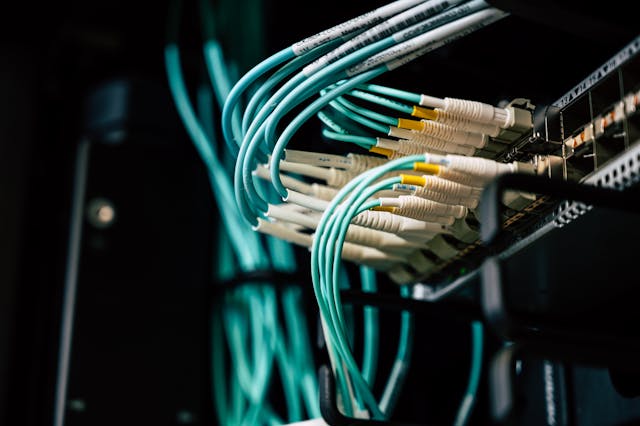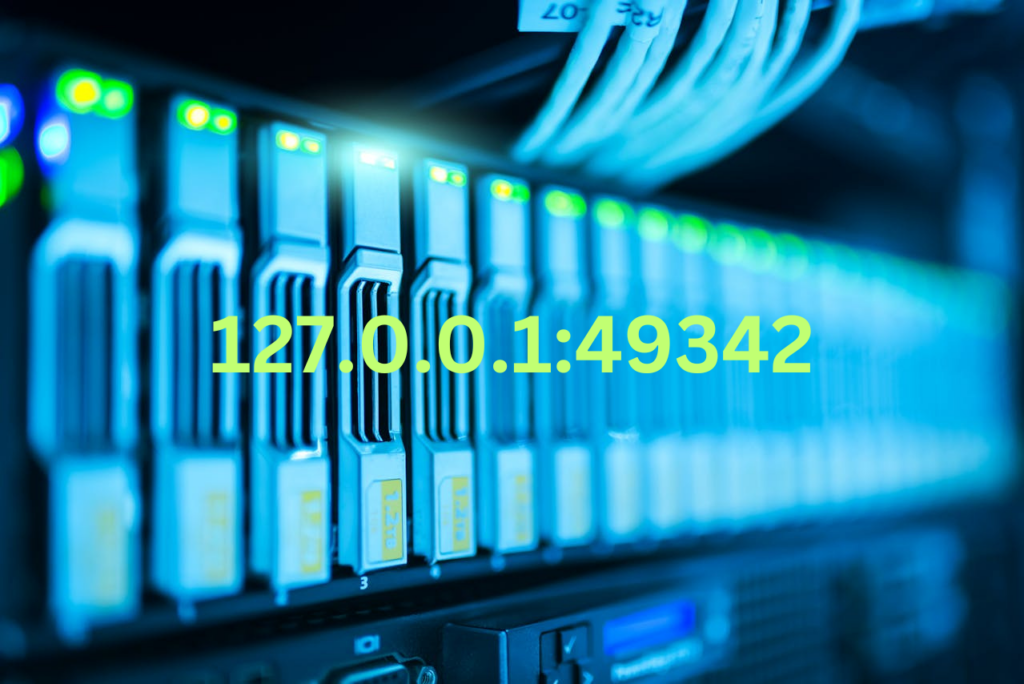Several identifiers such as “127.0.0.1” or “localhost” might sound funny and meaningless, but for any developer or anyone interested in networking, “127.0.0.1:49342” is a very important value. This IP address combined with a port number is used in essence for how individual applications communicate in the confined space of a single machine.
Understanding 127.0.0.1:49342 assumes knowledge of such topics as the concept of networking locally through the local host, and the use of port numbers in present-day computing systems.
The Basics of 127.0.0.1: Localhost Networking

This IP address “127.0.0.1” has its name as the localhost. It is a unique address, leading back to the same device used, to allow the computer to interact with itself. They are also known as “loopback” addresses in networking, though the criteria for qualifying for this kind of address is not strictly defined. Unlike normal IP addresses where the connection is made to external servers or devices, the term localhost ensures that all the data packets are within the same system.
This makes it very useful for testing since users can practice with a device without necessarily having to connect to the Internet or be on a server.
The importance of the local host is clear and unbroken from the structure of the networking technique. It is a construct that exists as a virtual interface within the device to provide a context in which applications can securely and efficiently pass data. For instance, the oral cavity that a web developer uses when testing their application through a local server may use the IP address 127.0.0.1.
The Role of Port 49342 in Localhost Networking
The port number, in this case, “49342,” refers to a specific route or doorway through which information passes in a system. All the applications or services to be hosted on a local host address must have their port number assigned to them. Each port works as a channel so that data input/output into one application doesn’t affect the others.
Port 49342, like any other, can be assigned dynamically or manually, depending on the situation. It can be utilized temporarily for development, to trace mistakes, or to test an application’s exclusive facilities. When used with 127.0.0.1, it forms a channel for applications to work with HCI, resulting in a perfect environment within the local setting.
For example, a web server process might be initiated that can listen to port 49342 concurrently with handling requests from the same local host through the loop-back IP.
Applications of 127.0.0.1:49342

According to the analysis of the work of the software applications, 49342 is involved in testing and debugging. Developers use this address to test real-life simulations in a controlled environment. For instance, a developer working on a web application can configure their local server to run on 127.0.0.1:49342. This enables them to run it as if it is live on the Internet, even though it is not, but it exposes the application to no risks or dependencies from the outside world.
One of the most prevalent is applied in the management of databases. Usually, interfaces such as MySQL or PostgreSQL reside on the local host and use designated ports for secure querying or the ability to update them. Computer code development is not exposed to risky web addresses hence avoiding compromise of critical information during design.
Security Implications of Localhost and Port Numbers
While it is mainly used over the localhost interface and, therefore is considered secure because it does not access the external network, misconfigurations and mistakes can be penalties. For instance, if an application binds to all IPs instead of 127.0.0.1 to provide sensitive data or services, a threat can easily get through. Also, randomly selecting port numbers may result in conflict or even making them public if another application on the device uses the same port number.
When working with 127.0.0.1:49342, firewalls and access controls must be correctly set up. Precautions must be taken to guarantee that only authorized applications may use the specified number of ports. Also, the selection of proper authentication tools and data encryption can improve the system’s control and security while testing sensitive applications.
Troubleshooting Common Issues with 127.0.0.1:49342

Interestingly, sometimes there are hurdles, especially when dealing with the local host networking system. One usual problem is port conflict, which happens when two or more applications try to connect via a certain port. In such cases, the developer may require determining the process that is conflicting with the port, stopping this process, or assigning the port to a different one. These conflicts can be diagnosed using Netstat and lsof tools.
One problem is that firewalls or antivirus software can sometimes prevent the use of localhost by regarding it as a threat. To solve this, developers can include the exception of a certain port or application in its security configuration. Further, having the correct local host address in the system’s host file can prevent connection problems.
Conclusion
In the world of networking and software development, 127.0.0.1 is more than an IP address and port number people try to describe as 49342; it is more than just that. It is a door to rapid local testing, safe development environments, and strong debugging procedures. When a developer knows how localhost networking and the particular ports are used, they are in a position to fully utilize this type of system.
Proper configuration and robust security are essential to prevent conflicts and vulnerabilities in such cases. Understanding the role of 127.0.0.1:49342 is important for modern computing.
FAQs
What does 127.0.0.1:49342 represent?
It identifies the computer’s IP address 127.0.0.1 linked with port no.49342 and is used for the local connection only.
Why is localhost important for developers?
Local hosts ease developers’ burdens in that regard by giving them an environment in which to test and fix application bugs without having to utilize other servers.
What is the purpose of port 49342?
Port 49342 conveys messages between local host applications or services that interconnect the various system components.
How can I resolve port conflicts on localhost?
There are several ways to clear port conflicts. Basically, the conflicting process can be turned into the particular program that utilizes the conflicting port, for example, netstat or lsof.
Is localhost secure?
Localhost is secure because it does not interact with external sources. Security should also be set up strictly to avoid connections from making unsolicited requests to these exposed services.



